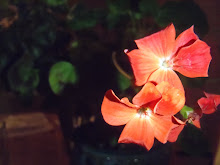"Canada is the only place on Earth that has...a national minority group, an Aboriginal population and a substantial immigrant population" p.9
" In Canada Multiculturalism has always been geared toward helping minority groups participate more fully in Canadian society" p. 10
"First, resources permitting, the government will seek to assist all Canadian cultural groups that have demonstrated a desire and effort to continue to develop a capacity to grow and contribute to Canada and a clear need for assistance, the small and weak groups no less than the strong and higly organized.
Second, the government will assist members of all cultural groups to overcome cultural barriers to full participation in Canadian society.
Third, the government will promote creative encounters and interchange among Canadian cultura groups in the interest of national unity.
Fourth, the government will continue to assist immigrant to acquire at least one of Canada's official language in order to become full participants in Canadian society"
-Trudeau, "Announcement of Implementation of
Policy of Multiculturalism within Bilingual Framework,"
House f Commons, Ottawa, 8 October 1971.
"Canadians talk a great deal about multiculturalism but spend very little on it. Of a total annual budget of $189 billion, about $27 million is earmarked for multiculturalism... less than 0.02% of federal spending." p 12
" For although there are two official language, there is no official culture, nor does any ethnic group take precedence over any other. No citizen or group of citizens is other than Canadian, and all should be treated fairly."
-Trudeau, "The Cultural Contributions of
Other Groups," Vol. IV, Royal Commission
on Biligualism and Biculturalism, 1971
" Not only do Canadians feel that multiculturalism is a central part of their country's identity, its also increasingly a source of pride." p. 20
" Canada has the highest proportion of foreign-born legislators in the world. This is true in two ways. First, we have the worlds largest proportion of seats in our lower legislative chamber (the house of commons) occupied by people who weren't born here. Second, our proportion of foreign-born legislators comes the closest in the world to matching the proportion of foreign-born people in the country's population overall." p 69
When I was in Uni. and required to take a methods course on statistical analysis I thought that reading data was about as dry as a 6 day old muffin in an Alberta winter. Who can forget pulling an all-nighter to study election survey results from 1996? Never one to tie down, I was a little surprised as I read through the evidence Micheal Adams cites as he writes about the burgeoning success of 'the multicultural experiment' with a fair bit of interest. The fact that I could reflect on the author's topic based on my own lived experiences made all the difference. Plus, it was interesting to have some of the history of multiculturalism (from before my time) highlighted so as to better understand how we got to where we are today. I think I am definitely one of those 18-26 who now take multicultural aspirations for granted as part of the Canadian ideal but I also confront some of the concerns Adams raises about "ethnic enclaves" on a daily basis. In the end, this book was like a little pat on the back that said, "You're doing well but keep that nose to the grindstone or it might all go for not." Funny, that attitude strikes me as kind of Canadian too !


No comments:
Post a Comment